Plagiarism Across Europe And Beyond is an established series of conferences, promoted on behalf of the European Network for Academic Integrity. The 2019 edition of the conference took place in Vilnius, Lithuania in June 2019.
I attended and delivered talks looking at contract cheating at subject level and exploring the academic writing market enabled through Fiverr.com.
The whole conference was interesting, with lots of practical tips and research shared. This conference attracted many of the top names in the academic integrity world to present. There were parallel sessions, so I could only attend some of them, mostly those on contract cheating. But here are some of my take-home ideas from the conference.
Findings From Plagiarism Across Europe And Beyond 2019
There are many methods that we can use to detect contract cheating
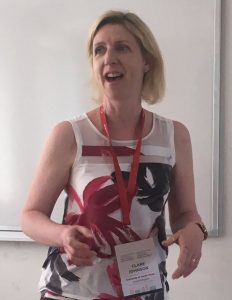
Detecting contract cheating has been a long-standing interest of mine. My PhD work focused on detecting plagiarism and, as a Computer Scientist, I believe that technology can form part of the process for addressing contract cheating.
Three sessions picked up on contract cheating detection. PlagScan focused on its new authorship tracking solution, which takes as its premise the idea that students who are taught together should develop a similar writing style from which a metric based solution can be used to look for outliers.
Clare Johnson showed how she’d been successfully using steganalysis methods, the same ones used for forensic computing investigations, to track unexpected edits within MS Word files. GSM London had developed software to automate looking at document properties across large numbers of documents. One of their finding was that many students used the same external writer and the same writer name could be tracked within multiple files.
We really don’t know much about student cheating at subject level
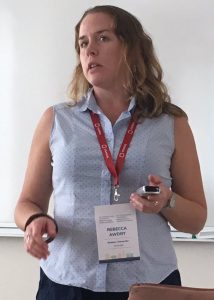
As my own talk showed, the traditional belief is that students are most likely to buy assignments in the Business discipline. But contract cheating services have now developed their advertising to focus on disciplines individually. I found three disciplines groups: (1) Computer Science, (2) Architecture, Building and Planning, and (3) Law, that were already highly exploited. I also found that the Creative Arts and Design group was at risk of further exploitation.
Rebecca Awdry presented her survey results of subject level cheating. Her finding was that students in Agriculture were most likely to outsource their work, with students in two areas: (1) Health, and (2) Languages being the least likely. These are different findings to other studies and frankly we just don’t know a lot about subject level contract cheating. As I said at the conclusion of my talk, we need to find more out about contract cheating in individual disciplines and to put subject level interventions in place before the essay industry does.
Felicity Prentice looked at essay spinning within medicine and found that the results of paraphrasing text through Google Translate were poor. For example, the common term “Emergency Department” was translated as “Erectile Dysfunction“, potentially making it not too hard for anyone trying to detect disguised plagiarism in that academic discipline.
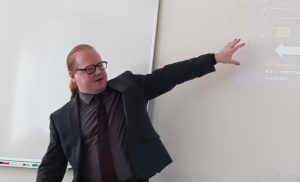
The contract cheating industry offers cheap work and use sophisticated recruitment techniques
In my research, I found that the price being requested by contract cheating writers had been driven down by competition, often hitting just $5 USD for 1,000 words. This isn’t necessarily reflected when students order through the more established essay mills, as they make their own mark up on the amount paid to the writer.
And, that the end quality of purchased work may not be very good. Wendy Sutherland-Smith spoke about she had purchased essays and checked the quality. 52% of the purchased essays had gained a failing mark.
Wendy also noted that students buying essays were putting themselves at risk. She said that she’d been contacted many times by writers outraged that students hadn’t paid them or had reversed credit card transactions.
Irene Glendinning found that a contract cheating service had recruited two students to work with them from a university based near Coventry, UK. By employing students, this would enable the contract cheating services to get access to other students. Recruiting students as brand ambassadors is now thought to be an established method used by these services, with the individuals referred to as “classroom moles“.
Felicity Prentice talked about the tools contract cheating services claim to be providing to students. One example of a paraphrasing tool, allegedly there to rewrite text so that this did not appear as plagiarism, provided intentionally bad output, whilst at the same time providing adverts for a better solution, buying an essay from them.
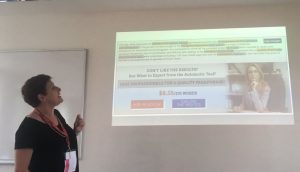
There needs to be more of a focus on continuing academic integrity outside the classroom
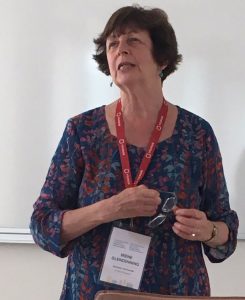
Several examples were given of where students were being encouraged to take shortcuts before reaching university level. Zeenath Khan said that her five year old had been given an assignment to make a physical model, something that they just couldn’t be expected to do. Their school must have known that parents would have to do the work.
Another conference attendant went further. She said that her son had won a prize for homework she’d completed for him.
The involvement of friends and family in the contract cheating process cannot be understated. In her survey, Rebecca Awdry said she’d found that 11.2% of students had used friends and family members to complete their work for them.
Irene Glendinning also found corruption in international quality assurance bodies, meaning that they could not always be trusted to ensure academic integrity in the universities they represented. In one startling example, 60% of higher education providers in India were said to have no quality assurance process.
We need to work with and engage students in spreading the academic integrity message

Many students are concerned about academic integrity. Wendy Sutherland-Smith spoke about successful interventions at Deakin University, most notably illustrated with a recent example where a student posted a message on Facebook asking for copies of other students’ assignments. Wendy said that four students reported this post within minutes. However, not all students wanted to see more done about contract cheating. For example, when the UK’s Bloomsbury Institute surveyed their students, most were not in favour of the institution implemented a whistleblowing policy.
Discussing contract cheating with students is essential. Rebecca Awdry surveyed a large number of students and found that students who thought other students cheated were most likely to cheat themselves. Many Student Unions are now supporting the need for this discussion. Early results from collaborative research between Coventry University and Deakin University has questioned if students understand institutional academic integrity processes and found that the way an investigative process is communicated with students may be problematic.
Students at one university were said to have complained when they were caught contract cheating. They said that they’d approached this assignment in the same way that they’d approached all their other assignments. This means that contract cheating needs to be addressed early and methods of detection also needs to be in place early.
The whole conversation surrounding integrity can be difficult. Anna Krajewska from Bloomsbury Institute, UK, found that her students said they cheated so as not to disappoint her. They did not always want to engage with the subject. One student summed up why they were really studying higher education by complaining “We pay this school £6000 per year… just to have stress”.
It is important to find methods of discussing academic integrity that engage students. Penny Beale from Suffolk County Community College shared an example that worked well for her, that of discussing tattoo plagiarism, presumably valuable in these days that so many students care passionately about the uniqueness of their body art.
Towards Plagiarism Across Europe And Beyond 2020
Overall, Plagiarism Across Europe And Beyond 2019 proved to be a useful and important conference. I look forward to attending Plagiarism Across Europe And Beyond 2020 in Dubai, where I am delivering one of the keynote addresses.
